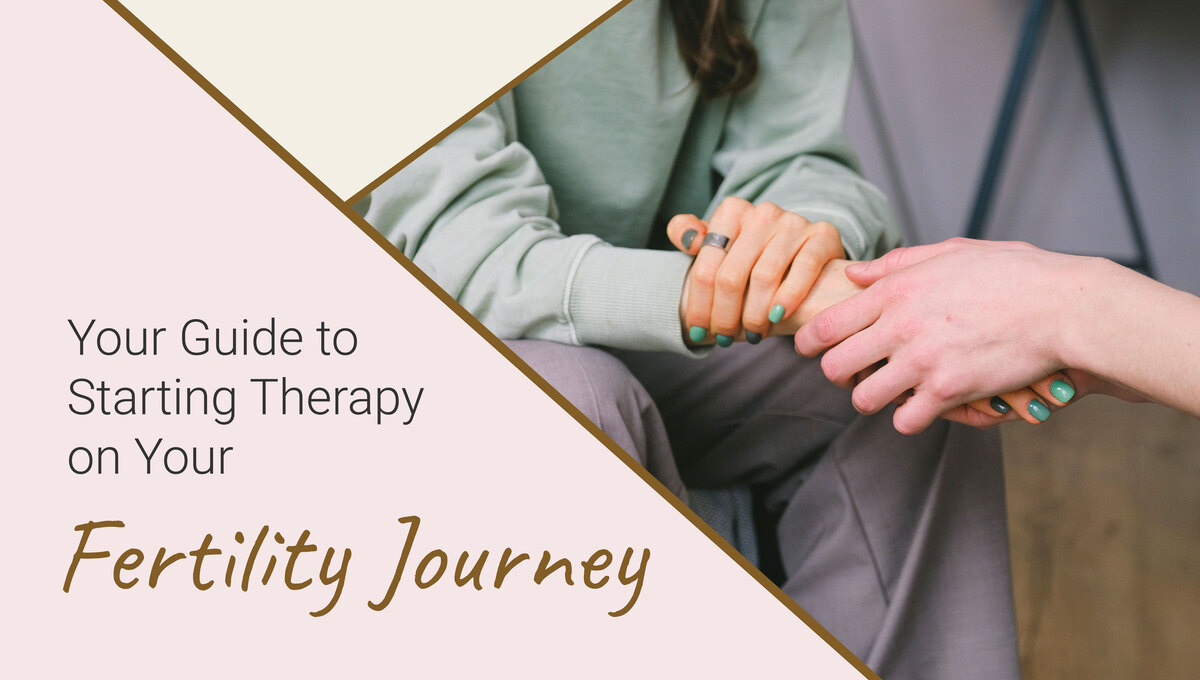Your Guide to Starting Therapy on Your Fertility Journey

So, you’re thinking about therapy. Maybe someone suggested it, maybe you’ve been staring at an open browser tab for a week, or maybe you just realized that talking to your houseplants about fertility treatment isn’t as effective as you’d hoped. Whatever brought you here, welcome. Therapy can be a great tool, and getting started doesn’t have to feel like a massive undertaking.
This guide walks you through recognizing when an infertility therapist might be a good fit, how to find the right one, and what to expect from your first session—without the clinical jargon or awkward self-help book vibes.

Recognizing When It’s Time for Extra Support
There’s no flashing neon sign that says, “Hey, therapy might help,” but there are a few clues to pay attention to. Maybe your usual ways of handling stress—exercise, meditation, baking an unreasonable amount of cookies—aren’t doing the trick anymore. Maybe fertility-related conversations have started feeling heavier, or you’re just plain exhausted.
Some signs that extra support could be helpful:
- The topic of fertility support keeps coming up in conversations (or you keep dodging those conversations).
- You’re having more “I need to lie down” moments than usual.
- Your search history includes things like "How to stay positive during fertility treatment" and “Can stress actually melt my brain?”
- Sleep, appetite, or general motivation have taken a hit.
There’s no wrong time to explore therapy—it’s not just for when things feel overwhelming. Sometimes, it’s just about having a neutral person in your corner who isn’t your best friend, your partner, or your barista.
Understanding Your Emotions
Getting a better read on how you’re feeling is a good first step. Some quick self-checks:
- Journaling – It doesn’t have to be in a “write a novel about your feelings” way—you can just jot down a few notes on what’s been on your mind.
- The 60-Second Check-In – Set a timer and mentally list what’s bothering you most right now. If “everything” is the answer, therapy might be worth exploring.
- The Trusted Friend Test – If a close friend described feeling the way you do, would you suggest they see a professional? If yes, consider taking your own advice.

Simple Steps to Begin Your Therapy Journey
Let’s be real—Googling “counseling for infertility” can lead to a black hole of information overload. Instead of scrolling for hours, break it down into steps.
Step One: Research and Reflection
Before diving into therapist listings, get a rough idea of what you want. Some questions to consider:
- Do you want someone with experience in fertility challenges and mental health, or would general mental health support be enough?
- Do you prefer in-person sessions, or would virtual therapy be more convenient?
- Are you looking for structured, solution-focused sessions or a more open-ended space to talk things through?
Once you have a sense of your preferences, start looking up therapists who specialize in fertility counseling. Websites like Psychology Today, your insurance provider, or even recommendations from fertility clinics can be good starting points.
Step Two: Making Contact
Reaching out to a therapist might feel awkward, but remember, they literally chose a career where their entire job is to listen to people. It’s what they do. Many even offer free consultations, so you can get a feel for their approach before committing.
Not sure what to say? Keep it simple:
"Hi [Therapist’s Name], I’m looking for support while going through fertility treatment and wanted to ask about your experience with fertility counseling. Could you share a little about your approach and availability?"
This keeps it direct while giving you the info you need. If they’re not the right fit, that’s fine—move on to the next option.
Step Three: Preparing for Your First Session
Good news: There’s no prep test for therapy. Your first session is just a chance to talk and get a feel for whether this person is someone you’re comfortable working with. But if you like feeling prepared, consider:
- Jotting down anything you’ve been struggling with lately.
- Thinking about what you’d like to get out of fertility therapy—coping strategies? Emotional support?
- Reminding yourself that therapy isn’t about having perfect answers—it’s about conversation and support.

Additional Tips for a Brighter Journey
Therapy is one tool, but there are plenty of ways to support emotional well-being along the way. A few ideas:
- The Two-Minute Reset – Whether it’s deep breathing, stretching, or blasting your favorite song, small breaks matter.
- Join a Community – Online or in-person fertility support groups can be a great way to connect with people who get it.
- Give Yourself Permission to Step Away – Not every conversation, article, or social media post about fertility needs your attention.
The Fertility Wellness Institute is Here to Brighten Your Path
Starting therapy doesn’t have to be complicated. It’s just another way to take care of yourself during fertility treatment—whether you need help dealing with infertility, figuring out how to cope with infertility grief, or just want an outside perspective.
At The Fertility Wellness Institute, we believe in supporting the whole person, not just the medical side of fertility care. If you’re looking for resources, encouragement, or expert care, visit our Contact Us page to learn more.
You don’t have to figure it all out on your own. Support is out there—sometimes, it’s just a matter of taking the first step.

